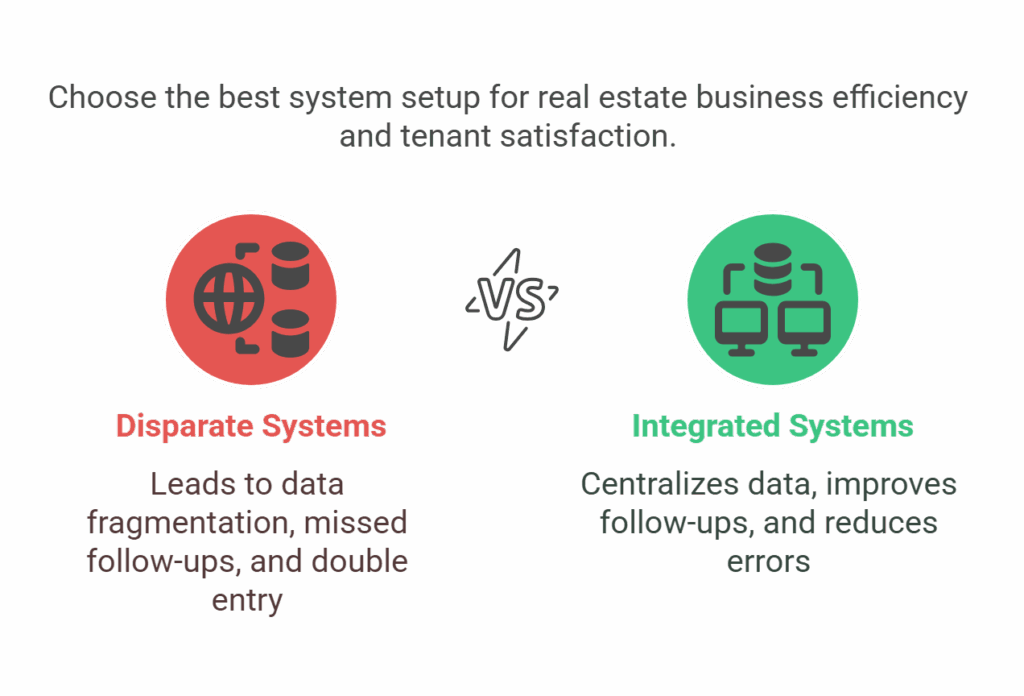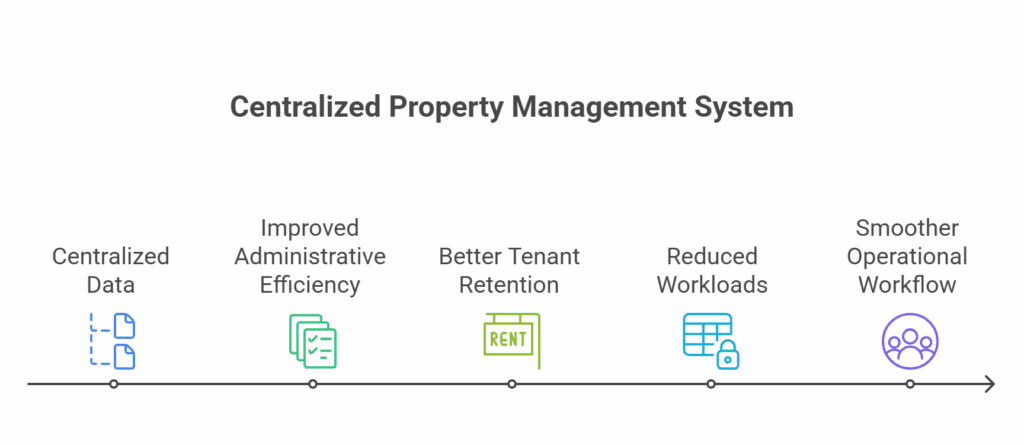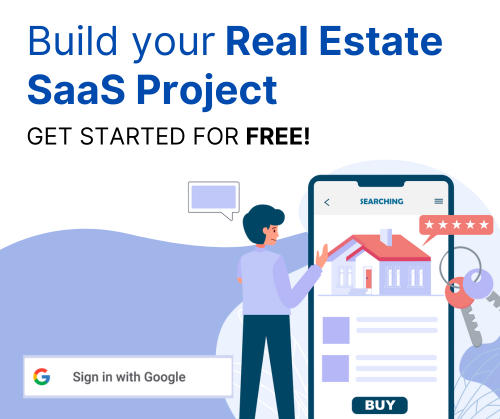A property management system for real estate is essential as the landscape changes. More people are choosing rentals, leading to a boom in the rental property sector. As rental properties increase, real estate professionals face the challenge of efficiently managing both client relationships and rental operations.
Why is there a growing demand for rental property management? The reason is simple. It's all about effective management. Real estate professionals need to handle multiple aspects, such as tenant relationships, property upkeep, and rental agreements. This means it's crucial to have a property management system for real estate that streamlines these processes—especially when supported by the best CRM platforms tailored for the real estate domain.
In this section, we'll explore the shifts in the real estate market that lead to increased rental demands. We'll also discuss why it's important for professionals in the field to adopt a property management system for real estate to manage these changes smoothly.
Challenges of Using Separate Systems in Real Estate
Running a real estate business with separate systems for CRM and property management can be a headache. When systems don't talk to each other, several problems arise, which can hurt your operations and tenant satisfaction. Fuzen’s no-code CRM solutions can unify those platforms effortlessly.
One major issue is fragmented data. If your CRM and management tools don't integrate, you might find vital information scattered across different platforms. This scatter makes it hard to locate and use data quickly, something you can address by building a CRM checklist app that centralizes all tenant information.
Another challenge is missed follow-ups. Without synchronization between systems, keeping track of client interactions and timely responses becomes tough. Missed follow-ups can lead to unhappy clients and lost opportunities. Adopting real estate lead nurturing best practices ensures every tenant inquiry is handled promptly.
Double entry is also a persistent problem. Staff might have to enter the same data into separate systems, wasting time and increasing the risk of errors. A well-integrated property management system for real estate helps eliminate this redundancy by centralizing operations.
These challenges don't just slow down business processes; they also create a poor experience for tenants. Tenants seek reliability and seamless interactions; issues like delayed maintenance requests or incorrect billing due to system gaps can lead to dissatisfaction.
This section highlights why operating with disparate systems can be detrimental to real estate businesses and emphasizes the need for integrated solutions.
The Power of Integration: Real Estate CRM and Property Management
Integrating real estate CRM with a property management system for real estate can transform your business operations. Instead of dealing with fragmented data and inefficiencies, you can enjoy a seamless workflow. Here's how integration helps solve the challenges mentioned earlier.
With integrated systems, tenant data synchronization becomes simple. All your data is in one place, allowing for quick access and real-time updates. This eliminates the headache of fragmented information.
Integration also supports automated lease renewals. You don't need to manually track lease expiration dates; the system handles it automatically. Automation reduces the risk of missed opportunities and keeps tenants informed, enhancing their experience.
Rent payment tracking is another vital feature. With everything centralized, you can monitor transactions in real time, making financial management more efficient.
Scheduling maintenance and managing communications from a single platform is a game-changer. You can respond to tenant requests promptly and keep everything organized without the need to switch between systems.
The overall impact of integrating CRM with your property management system for real estate is that it boosts efficiency. Your team spends less time on administrative tasks and more time on growing client relationships. Tenants enjoy better service, leading to higher satisfaction and retention.
This section underscores the significant advantages of having an integrated solution, which translates to a streamlined, more effective property management approach.
Key Benefits of a Centralized System
Adopting a property management system for real estate offers numerous tangible benefits. These advantages not only improve your workflow but also enhance tenant satisfaction.
One major benefit is centralized data. When all information is stored in one place, accessing and managing centralized tenant data becomes much easier. This keeps everything organized, reduces errors, and saves time.
A centralized property management system for real estate also leads to improved administrative efficiency. With streamlined processes like CRM and inventory management, your team can focus on what's important without getting bogged down by tedious tasks. This boost in efficiency directly impacts business growth.
Better tenant retention is another key advantage. When operations run smoothly, tenants receive timely communication and services, increasing their satisfaction. Happy tenants are more likely to renew leases and stay longer.
Finally, a centralized system significantly reduces workloads. Automated processes and efficient data management mean less manual work for your staff. This gives them more time to focus on strategic initiatives and building strong client relationships.
In conclusion, these benefits contribute to a smoother operational workflow. They translate into happier tenants, a more productive team, and a thriving real estate business.
Popular Tools for Real Estate CRM and Property Management Integration
Integrating real estate CRM with a property management system for real estate is easier with the right tools. Let's explore some popular solutions that make this process seamless and efficient.
- Buildium: Buildium offers comprehensive property management features tailored for real estate companies. It supports everything from accounting and maintenance requests to lease tracking. Buildium’s CRM integration capabilities help streamline communication with tenants and clients, making data management easier.
- AppFolio: Known for its user-friendly interface, AppFolio provides robust features for property management. It supports online payments, maintenance scheduling, and tenant communications. AppFolio’s integration functions offer a unified approach to managing both real estate CRM and tenant data, ensuring all information stays connected.
- Rentec Direct: Rentec Direct is designed for small to mid-sized property managers. It offers features like tenant screening and financial reporting. Rentec makes it easy to integrate CRM platforms, providing a cohesive system for managing tenant interactions and property operations.
- Zoho CRM: Although primarily a CRM tool, Zoho CRM offers various integrations that expand its functionality for real estate. It helps manage client relationships and can be linked with a property management system for real estate for an all-in-one solution. Zoho’s customization options allow you to tailor the system to fit specific real estate needs.
These tools provide unique features that support effortless integration between CRM and property management systems. By choosing the right one for your business, you can simplify operations and elevate tenant experience.
Building a Custom Integrated CRM with Fuzen
For real estate agents and property managers looking to create a tailored experience, Fuzen offers an excellent solution. Using Fuzen, you can build custom CRMs integrated with rental management tools without writing a single line of code.
Setting up these custom systems with Fuzen is remarkably simple. You don't need technical expertise to get started. Fuzen provides no-code solutions that are intuitive and straightforward, allowing you to focus on what matters—building a custom real estate CRM and enhancing tenant experience.
One of the standout benefits of Fuzen is its flexibility. You can customize your CRM based on your specific needs. Whether you require additional features for tenant communications or more streamlined processes for handling leases, Fuzen's platform can adapt to your requirements.
Beyond flexibility, Fuzen offers significant cost savings. The primary expense you'll incur is for hosting costs. This means you can build and maintain powerful systems without hefty upfront fees or expensive ongoing subscriptions.
Fuzen leverages strong AI integrations to further simplify the customization process. With AI-driven prompts, you can modify functionalities without extensive planning or deep technical skills. This makes the system scalable as your business grows, ensuring it remains easy to maintain and adjust over time.
By utilizing Fuzen, real estate professionals can craft a seamless CRM experience integrated with property management tools, paving the way for improved efficiency and client satisfaction.
Conclusion
Integrating CRMs with a property management system for real estate is essential for professionals aiming to streamline their operations. It's a step towards eliminating inefficiencies and enhancing tenant experiences. As the market shifts, having a connected property management system for real estate becomes key to maintaining competitive advantage and operational excellence.
Fuzen stands out as a powerful ally in this journey. With its no-code solutions, you can build a robust, customized system without any coding expertise. Fuzen ensures agility, so your real estate operations can grow and adapt as needed, all while keeping costs in check.
Embracing integration is not just a choice—it's a necessity for future success in the real estate world.

Pushkar is a seasoned SaaS entrepreneur. A graduate from IIT Bombay, Pushkar has been building and scaling SaaS / micro SaaS ventures since early 2010s. When he witnesses the struggle of non technical micro SaaS entrepreneurs first hand, he decided to build Fuzen as a nocode solution to help these micro SaaS builders.




